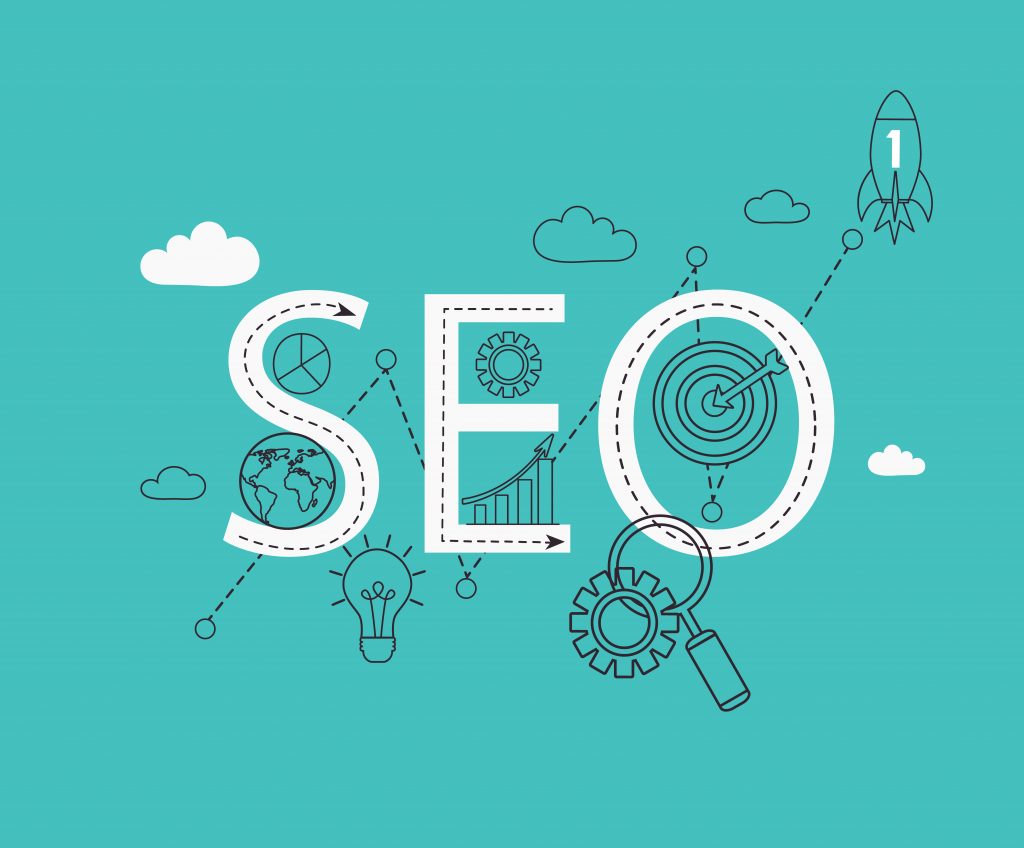Last updated on September 6th, 2024

If you’re grappling with the eternal debate between organic search vs. paid search, you’ve come to the right place. Finding the most effective and lucrative marketing strategy can be a pressing concern for a business owner.
Organic search, anchored in SEO finesse, champions the organic growth of online visibility through content. On the flip side, paid search, driven by targeted advertising, offers immediate visibility with a financial investment.
This blog post will help you navigate the choice between organic search and paid search and empower you to make strategic decisions that align with your growth objectives. So, let’s begin as we break down the dynamics of organic search vs. paid search.
What is the difference between SEO and PPC?
Organic search and paid search are broader disciplines that are targeted with specific strategies and methodologies.
Organic search is fueled by SEO or Search Engine Optimization where you create and optimize your webpages in a way that search engine algorithms find them to be the most useful to searchers and display them in organic results.
Paid search, on the other hand, uses a technique called PPC or Pay Per Click. Here, you pay search engines to put your webpage on top of the search results as paid search results, albeit with a clear notation of it being “sponsored”.
While there are other ways of targeting organic and paid search, SEO and PPC remain the most popular marketing avenues/approaches to gain online visibility. Let’s delve a little deeper into the fundamental differences between PPC and SEO.
Natural search vs. paid search
As a business, your main objective is getting traffic. A simple way to understand the difference between organic search (also known as natural search) and paid search is to understand a Google SERPs page. When you take on paid search as a strategy, you’re essentially looking to gain traffic by appearing in the ‘Sponsored’ section of the SERP.
Adopting the natural search strategy means you’re looking to appear in the organic results on Google’s SERP. Do both get you traffic? Yes. Is one better than the other? Absolutely. More on that in the coming section.
Natural search is driven by SEO and thrives on the quality and relevance of your content. On the other hand, appearing in paid search results requires your investment in targeted advertising for instant visibility.
While natural search depends on the strength of your content, paid search relies on financial backing. This leads to a noticeable difference in how you align and strategize your marketing efforts.
How do organic and paid search strategies differ?
PPC can be directly equated to search ads. Since PPC relies on paying per advertisement, its strategy primarily targets customers at the bottom of the sales funnel. These are audiences who are ready to buy or are ready to purchase from you again. So, PPC offers immediate visibility in front of users actively searching for products or services, emphasizing conversion.
SEO, by design, can meet customers wherever they are. So you can strategize to meet customers at each stage. At the top of the funnel, SEO enhances brand awareness, ensuring visibility in search results. It emphasizes informative and engaging content in the middle stages, guiding potential customers through the consideration phase.
Finally, at the bottom of the funnel, SEO ensures that your site is easily discoverable when users are ready to make a purchase, contributing to conversion and long-term customer retention. In a way, SEO is a long-term play, while PPC is a quick-win solution. This difference in strategies informs how keywords are used for each strategy.
Organic keywords vs. paid keywords: Is there a difference?
The debate about organic keywords vs paid keywords is more about search intent than the keywords themselves. Keywords are neither organic nor paid in nature which means that you can use any in organic or paid search. However, the context and purpose of keywords differ. This is where the debate about paid keywords vs organic keywords stems from.
Since SEO can target users in different sales funnel stages, the keywords are chosen accordingly. At the top and mid, broad informational keywords are chosen that satisfy the informational intent of the user. Transactional keywords are selected to capture users ready to make a purchase at the bottom of the funnel.
PPC mainly targets transactional keywords. This makes it effective for conversion, but it plays a limited role when it comes to branding and creating authority with audiences in the consideration phase.
Adapting keyword strategies to match the user’s intent, ensuring relevance, engagement, and effective guidance throughout the entire sales journey, is a unique strength of SEO.
While picking keywords for a PPC campaign, you have to take into account the cost per click of each keyword. In contrast, when choosing keywords for SEO, you take into account such metrics as keyword difficulty, traffic potential, and user intent.
SEO vs. PPC comparison: what gets better results?
So much for the differences between organic keywords and paid keywords. In truth, your decision will hinge on which one gets better results, so let’s get into some details.
Advantages of paid search: Why choose PPC?
Let’s look at the core benefits of paid search first.
Paid search results are instant
One significant advantage of paid search, often the first to be highlighted in the SEO vs. PPC debate, is its ability to generate instant results. Through targeted advertising, PPC campaigns provide immediate visibility on search engine results pages. PPC is great for quickly driving targeted traffic, maximizing conversion rates, and achieving specific short-term objectives.
This rapid exposure helps when dealing with time-sensitive promotions, product launches, or looking to get traction with a specific audience quickly. E-commerce, event-based businesses, and startups often find PPC effective.
Unlike SEO, which involves a gradual climb in organic rankings, PPC’s instant impact makes it a powerful tool for businesses looking for immediate returns and a competitive edge.
Paid search is great for targeting users with transactional intent
Another critical advantage of PPC is the precision with which paid search targets users at the bottom of the sales funnel with transactional intent. With strategic keyword selection, ads are displayed to users actively searching for products or services, maximizing the likelihood of conversion.
This transactional focus sets PPC apart from the broader reach of SEO, making it particularly great for businesses aiming to capture an audience poised for immediate action.
Paid search offers data and insights that can help SEO strategy
Keywords and content have to be tested. Doing so with traditional SEO methods can be time-consuming as SEO involves a longer feedback cycle. With paid search campaigns, you can experiment with various keywords, ad copy, and landing page combinations in real time.
Ads either work or not, so this immediate feedback loop lets you quickly analyze which keywords are working and which need updating. PPC can also offer other data like click-through rates and conversion metrics for ad copy.
This is one aspect where PPC extends its advantage beyond instant visibility and allows you to complement your SEO strategy. Done smartly, PPC can bolster your SEO efforts.
Advantages of organic search: Why choose SEO?
Let’s turn our attention to the benefits of organic search and see what it has to offer for marketers and business owners.
SEO or Organic Search is super cost-effective
One compelling advantage of optimizing for organic search is its minimal cost. Unlike PPC, which requires careful consideration of a budget for each click, organic search leverages content optimization strategies without placing direct financial expenses per visitor.
There is initial investment required in SEO for creating quality content and optimizing website structure. What’s important, though, is that the ongoing benefits of organic visibility continue without the continuous financial commitment required by paid advertising.
This makes it a better option for businesses starting out with a small marketing budget or looking to generate brand awareness and authority in their niche.
Organic search results compound over time
This advantage of organic search has to be underscored. Although somewhat slow, organic results accrue and get compounded over time. As a website continually enhances its visibility through SEO practices, the cumulative impact becomes increasingly potent.
The compounding nature of organic results means that the efforts and resources invested in SEO today will generate results today, tomorrow, and for a considerable amount of time to come. This will be true for a certain length of time, even if you stop investing in SEO.
With PPC, it’s the opposite. It gives instant results that stop the minute you stop paying for ads and has no carryover advantage for the future. The fact that you invested in ads some time back will have no bearing on your online assets’ quality, ranking, or authority after you stop the ads. Traffic, ranking, and revenue will all return to baseline when ads are stopped.
However, SEO is done on owned media. So, if you invest in SEO once, you’ve forever upgraded the quality of your website, content, and overall SERP rankings. Any further SEO efforts will build upon it. This positions organic search as a powerful long-term strategy for businesses looking for visibility, consistent growth, and authoritative prominence.
Organic search is great for targeting users with informational intent
One key aspect of creating brand awareness and authority is delivering quality informational content to your audience. Content that purely educates and informs holds the power to position brands and businesses as go-to resources in the minds of their target audience.
Ads sell but don’t inform. SEO has the unique advantage of strategically targeting and catering to users with informational intent. Businesses can attract and engage users at the top of the sales funnel by optimizing for relevant keywords and producing high-quality, informative content.
Not only that, to create awareness and consideration, SEO can leverage various content types, like blogs, reports, case studies, etc. Targeting the top of the funnel also widens your audience base.
Look at it like this: with PPC, you can make a customer, but with SEO, you can make a name for your business. In the long term, this established authority and credibility will ultimately pay dividends in the form of customers who want to buy only from you.
PPC vs SEO: which is better in terms of ROI?
So, are ROIs best with SEO or is it PPC that is the best use of your hard-earned money?
Answering this question needs a nuanced approach. While PPC offers immediate visibility, if you look purely at ROI, SEO stands out as a long-term ROI champion. Compared to the continual expenses of PPC, the low ongoing costs associated with SEO contribute to sustained profitability over time.
SEO’s compounding results, cultivated through quality content and credibility building, further enhance its advantage. Although SEO demands patience, the enduring benefits, reduced costs per lead, and the organic nature of its growth make it a better choice for businesses aiming for steady online growth.
If organic or paid search is too much, Ranq is here to help!
Now you know that SEO comes out on top when you look at the long-term ROI of your investments. PPC is best thought of as an adjunct to robust and regular SEO. However, navigating the complexities of SEO can be overwhelming. If you’re looking for SEO or SEO and PPC management for your business, Ranq is here to help!
We are a boutique agency offering end-to-end SEO solutions to businesses looking to grow online. Our dedicated team of SEO experts and content strategists have together created a stellar track record of outstanding results for our clients. We simplify the SEO side of things and tailor strategies to your unique business needs, ensuring that your online presence thrives. If you’re ready for ready to elevate your online presence without the stress of managing SEO, contact Ranq today!

